- All
- Ongoing
- 2025
- 2024
- 2023
- 2022
- 2021
- 2020
- 2019
- 2018
- 2016
- 2015
- 2013
- 2010-2006
- 2005-1990
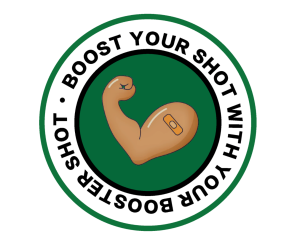
Using innovative methods to address COVID-19 vaccine hesitancy in Philadelphia adults: Leveraging communication
Funder: 2022 Catalytic Collaborative Research Initiative Funding Program, Office of the Vice Provost for Research, Temple University
PI: Sarah Bass, CO-Is: Heather Gardiner, Whitney Cabey
This project studies COVID-19 booster hesitancy among fully vaccinated Philadelphians to create a targeted communication campaign and assess changes in attitudes toward booster shots.

QUEEN-P (QUestions to Empower and ENgage PrEP)
MPIs: Sarah Bass and Marné Castillo
We are evaluating an eHealth tool called QUEEN-P (QUestions to Empower and ENgage with PrEP). This tool is designed to help young trans women aged 15-24 in Philadelphia make informed decisions about PrEP and improve adherence. Our goal is to support better decision-making and PrEP use through the information provided by QUEEN-P.

GenePilot LX: Tumor Genomic Profiling (TGP) and Medical Mistrust in Latinx Cancer Patients
Funder: U54
MPIs: Sarah Bass, Michael Hall, Tracey Revenson
This study aims to test how well an eHealth decision support tool helps Latinx patients make informed choices about TGP at cancer centers in Philadelphia, New York City, and Camden, NJ.

A Trauma-Informed Intervention for Sexual Minority Men Recently Diagnosed with HIV (RISE)
Funder: National Institute of Mental Health (NIMH)
PI: Wilson Vincent; Co-I: Sarah Bass; MPI: Nathan Hansen; Consultant: José Bauermeister
This study is the first step in developing the Resilience-Based Intervention for Stress-Reduction and HIV-Related Efficacy (RISE). RISE is a trauma-informed, telehealth intervention based on Cognitive Behavioral Therapy. It aims to help newly diagnosed Black sexual minority men (gay, bisexual, or other men who have sex with men) living with HIV (+BSMM) manage traumatic stress and improve engagement in HIV care. This study addresses the first goal of a larger three-part research program, which seeks to develop and pilot-test RISE to support +BSMM in adjusting to life with HIV and staying connected to care.
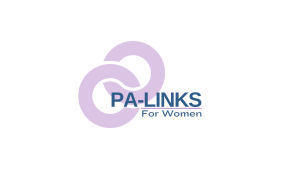
PA Links Administrative Supplement
Funder: National Institute of Drug Abuse
MPIs: Sarah Bass and Emily Dauria
This supplemental award for PA-Links builds on our current project by exploring how intersectional stigma, trauma, and resilience affect access to services. Our work highlights the importance of addressing these factors to improve service connections for women after jail, prison, or parole. We will conduct interviews and surveys with women involved in the criminal legal system and with service providers. The goal is to understand and overcome barriers to create effective, meaningful interventions.

Development and pilot testing of a mobile health application to improve HIV prevention and substance use treatment service access among women involved in the carceral system
MPIs: Sarah Bass, Emily Dauria
Funder: National Institute on Drug Abuse (NIDA)
The goal of this research is to pilot test PA-LINKS, a web-based intervention designed to promote PrEP and MOUD uptake among women leaving carceral settings (WLCS). This approach uses tailored messages developed through innovative research methods. In collaboration with Philadelphia FIGHT, a federally qualified health center, we will conduct a pilot randomized trial in Philadelphia to evaluate the intervention’s effectiveness, feasibility, and acceptability.

NeuroHIV Community Engagement Core
Funder: National Institute of Mental Health
Director of core: Sarah Bass; Co-director: Maria Schultheis
This project is part of the Comprehensive NeuroHIV Center and focuses on three main goals:
- Conducting a Community Needs Assessment (CNA) to identify the needs of community partners and researchers, refining our research support services.
- Serving as a key resource for culturally competent research that addresses neuroHIV disparities, including forming a Community Partnership Advisory Board (CPAB).
- Supporting the sharing of research findings and promoting two-way communication with impacted communities.

Intersectional Stigma and Discrimination among Justice-Involved Adults with Co-Occurring Opioid Use and Mental Health Disorder
Funder: None
PI: Sarah Bass; Co-Is: Ariel Hoadley
This study has three main objectives:
- Develop and evaluate a multidimensional tool to measure intersectional internalized stigma among justice-involved adults with co-occurring opioid use disorder (OUD) and mental health disorders (MHD).
- Assess a new measure of intersectional discrimination and its health impacts, including psychological distress, active concealment, and health-related quality of life.
- Explore how internalized stigma, social support, and recovery capital mediate or moderate the effects of intersectional discrimination on health outcomes.
Findings will advance the understanding of intersectional stigma and discrimination, highlight their health effects on justice-involved individuals with co-occurring disorders, and identify opportunities for empowerment-based interventions like recovery capital and social support.

Communicating Effectively about Donation - Improving the Donation Process and Outcomes for Black Americans (CEaD-I DO)
Funder: Gift of Life Transplant Foundation
PI: Laura Siminoff; Co-Is: Heather Gardiner & Sarah Bass
This study will examine the experiences of Black families when asked to donate the organs of a loved one. Currently, nearly 30,000 Black Americans are on the organ transplant waiting list. Black people are overrepresented on the list and experience longer wait times due to higher rates of health conditions like hypertension and diabetes, as well as lower rates of organ donation among Black families.
The goal of this study is to understand the factors that influence Black families’ decisions about organ donation. The research will involve in-depth interviews with Black FDMs who have considered organ donation for a loved one. The data gathered will help improve communication between organ procurement organizations (OPOs) and Black families, potentially making the donation process smoother and more effective.

Understanding Communication Practices and Barriers to Cascade Testing for Hereditary Cancer Risk Among Racially Diverse Families
PI: Kristen Whitaker Co-I: Sarah Bass.
Funder: American Association for Cancer Research (AACR)
This study will explore the factors that make Cascade Testing (CT) either easier or more difficult for patients. It will develop a survey using perceptual mapping techniques to understand how Black and White patients experience and perceive genetic risk communication and CT. The aim is to identify common barriers as well as race-specific challenges, which can then be addressed through targeted messaging to encourage greater participation in CT.

Development and user testing of a culturally targeted anal cancer prevention decision tool
PI: Christopher Wheldon; Co-I: Sarah Bass
Funder: National Institute of Minority Health and Health Disparities
This application focuses on developing a clinic-based intervention to reduce anal cancer disparities in sexual and gender minority (SGM) populations, particularly among men who have sex with men (MSM) and transgender women (TGW). These groups face higher rates of anal cancer, but the HPV vaccine, which can prevent it, is underused by MSM/TGW. We aim to promote the HPV vaccine within the PrEP care system to reach more underserved MSM/TGW and help prevent anal cancer.
Our long-term goal is to create a toolkit for healthcare providers to guide shared decision-making about anal cancer prevention for MSM/TGW using PrEP. Currently, there is little research on how to effectively communicate anal cancer risks and prevention to diverse MSM/TGW populations. This study will focus on developing clear, relevant messages that meet the needs of MSM/TGW in PrEP care.

Data-driven, peer-led messaging using social media influencers to increase PrEP awareness and uptake among transgender women
MPIs: Sarah Bauerle Bass, Sophia Zamudio-Haas
This project will leverage preliminary finding from our team’s previous NIMH funded R21 grant to leverage trans women social media influencers to deliver targeted PrEP messaging to trans women via instagram. We will design a community-led, social media based PrEP messaging training for trans women social media influencers, and design and pilot test the SIS (Sisters Influencing Sisters) intervention. This project is novel in its use of social media influencers to deliver PrEP messaging to and connect followers with PrEP resources.

Attitudes towards tumor genomic profiling (TGP) testing, genetic testing, and medical mistrust among Latinx patients
MPIs: Michael Hall, Sarah Bauerle Bass
Funder: NIH (NCI; U54 project)
This project will examine attitudes about genetic testing in diverse cancer patients (Latinx, White, Asian) and compare results to those in Black/African American cancer patients. Results will inform potential modification of an eHealth decision tool for patients on tumor genomic profile testing.

Disparities in attitudes towards somatic and germline genetic testing in cancer patients: examining medical mistrust [1.2022 - 12.2022]
MPIs: Michael Hall, Sarah Bauerle Bass
Funder: ECOG-ACRIN
This study will use a national sample of diverse cancer patients to understand the relationship between medical mistrust and understanding and use of genetic testing.

Using innovative methods to address COVID-19 vaccine hesitancy in Philadelphia adults: Leveraging community connections [1.2022 - 12.2023]
PI: Sarah Bauerle Bass; Co-Is: Heather Gardiner, Whitney Cabey
Funder: Vice Provost for Research Catalytic Collaborative Funding Initiative
This study will examine vaccine hesitancy in Philadelphia and develop a targeted communication campaign to assess changes in attitudes about vaccination.
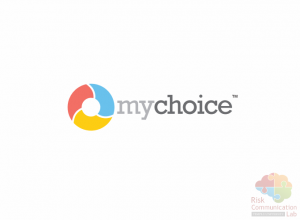
Shared Decision Making in Clinical Trial Participation [2021-2023]
PI: Linda Fleisher. Co-I: Sarah Bauerle Bass
Funder: Genentech
This study will assess the perceptions and decision making process related to clinical trials for both patients (attitudes towards clinical trials) and providers (the decision making process to offer clinical trials and how they communicate their decision making to patients) throughout the course of treatment providing a deeper understanding of the complex factors that impact shared decision making. These findings will guide the adaptation of a multi-level mychoiceTM program for patients and providers and its implementation in oncology care.

Refinement and Pilot Testing of an Intervention for the Prevention of Infectious Airborne Diseases in the Workplace for Individuals with Autism Spectrum Disorders [2021-2024]
PI: Beth Pfeiffer. Co-PI: Sarah Bauerle Bass
Funder: National Institute on Disability, Independent Living, and Rehabilitation Research (NIDILRR)
This project will refine a previously piloted peer support intervention (SAFE) to help adolescents and young adults with autism spectrum disorder (ASD) to understand and use safety precautions for airborne diseases in the workplace including COVID-19 protection. The Risk Communication Lab will conduct formative evaluation through interviews and perceptual mapping and vector message modeling analyses to develop a message strategy that will be embedded into the training and then piloted in a randomized control trial.

Modeling Perceptions Of Social Location And Decision-Making To Develop Targeted Messaging Promoting HIV Care Engagement And ART Adherence Among Women Living With HIV In The South
PI: Courtney Caiola. Co-I: Sarah Bauerle Bass
Funder: National Institute of Nursing Research
Women living with HIV in the South represent a stark disparity with respect to HIV viral suppression. This R21 is an exploratory sequential mixed-methods study that uses indepth interviews and perceptual mapping and vector message modeling analyses to develop targeted messages to enhance engagement in HIV care and ART adherence for women living with HIV in the south and then concept test these messages with key stakeholders.

RapidVax [2021-2021]
PI: Dean Siminoff. Co-I: Sarah Bauerle Bass
Funder: City of Philadelphia
The Temple University College of Public Health has developed the RapidVax project to get COVID-19 vaccinations to communities across Philadelphia. Through a grant from the Philadelphia Department of Public Health and utilizing clinical and public health faculty, staff, and students, RapidVax is able to quickly provide COVID-19 vaccinations to people in their communities by working with a variety of organizations and partners. The Risk Communication Lab is specifically responsible for created targeted health communication messaging about the COVID-19 vaccine to Philadelphians in partnership with our community partners.
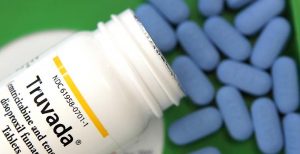
Use of Perceptual Mapping to Produce a PrEP Communication Strategy for Young Trans Women [2021-Ongoing]
PI: Marne Castillo. Co-PI: Sarah Bauerle Bass
Funder: Penn Mental Health AIDS Research Center (PHMARC)
Transwomen are disproportionately affected by HIV. Little is known about young transwomen’s experiences and potential barriers to pre-exposure prophylaxis, a once daily medication that can reduce risk of HIV acquisition. This project utilizes perceptual mapping and vector modeling to develop targeted messages and prototype communication materials for young transwomen about PrEP.
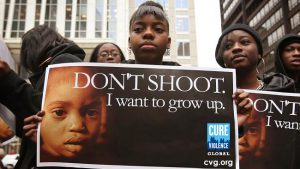
Don’t Shoot! I Want to Grow Up [2021-2023]
PI: Marla Davis-Bellamy. CO-I: Sarah Bauerle Bass
Funder: Pennsylvania Commission on Crime and Delinquency
This project duplicates the public health Cure Violence evidence based street model designed to reduce homicides and shootings by 10% in the 14th Police District of Philadelphia. The project is a collaborative effort through partnerships with schools, community, and law enforcement. The Risk Communication Lab and Philadelphia CeaseFire program at the Temple University Lewis Katz School of Medicine work collaboratively to develop targeted messages that promote safety using perceptual mapping and vector modeling. In our lab, we specifically lead the formative work necessary to develop the communication output for this campaign to reduce violence.
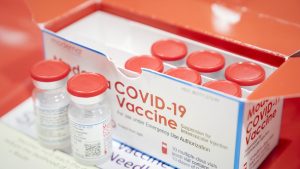
Using the RE-AIM Framework to Assess Barriers to Communication and Response Implementation During the COVID-19 Outbreak in Staff and Substance Using Clients of a Large Syringe Exchange [2020-2021]
PI: Sarah Bauerle Bass
Funder: NIH R34 (NIDA)
The COVID-19 pandemic mitigation measures are difficult for those with substance use disorder who are more likely to be unstably housed and do not have the economic means to comply. They may also have less access to communication messages about how to reduce their risk of contracting COVID-19. The purpose of this project is to retrospectively investigate how COVID-19 was prioritized by clients of a Philadelphia syringe exchange and how organizational decisions about risk mitigation helped or hurt that prioritization. We will assess perceptions of COVID-19 risk and messaging and analyze organizational response and COVID-19 plan implementation using the RE-AIM framework to inform strategies.
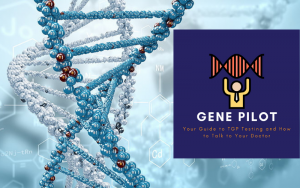
E-IMPART: Enhancing Informed Decision Making in Physicians and African Americans Patients on TGP Testing [7.2018-6.2023]
CO-PIs: Mike Hall & Sarah Bauerle Bass.
Funder: American Cancer Society (ACS)
“E-IMPART: Enhancing Informed Decision Making in Physicians and African Americans patients on TGP testing”. This study will develop and test interventions for both oncologists and African American cancer patients on tumor genetic profile testing.

Development of a Culturally Targeted Intervention to Encourage PrEP Use in At-Risk Women who Inject Drugs [3.2018-2.2021]
PI: Sarah Bauerle Bass.
Funder: NIDA
“Development and pilot testing of a PrEP communication intervention and integration into an existing HIV testing service for female IV drug using clients of a needle exchange.” This project will use perceptual mapping to inform the development of a culturally targeted intervention to encourage PrEP use in at-risk women who inject drugs.

Patient Perception of Factors that may Optimize Diabetes Self-Management in a Socioeconomically Challenged Population [10.1.2019-9.30.2020]
PI: Dan Rubin. CO-I: Sarah Bauerle Bass
Funder: American Diabetes Association
“Patient perceptions of factors that may optimize diabetes self-management in a socioeconomically challenged population”. This project is using the Extended Parallel Processing method to categorize patients with poor diabetes control by self-efficacy and risk perception and qualitatively interviewing them to understand potential important differences in how to design strategies to help these patients with their disease.

Use of Perceptual Mapping and Vector Modeling to Identify HCV Treatment Initiation Barriers [7.2015-12.2018]
Co-PIs: Sarah Bauerle Bass & Amy Jessop
“Use of Perceptual Mapping and Vector Modeling to Identify HCV Treatment Initiation Barriers.” This project is to identify HCV treatment initiation barriers in methadone clients to develop a tailored mobile application and test in a pilot RCT with 3 Philadelphia methadone clinics.
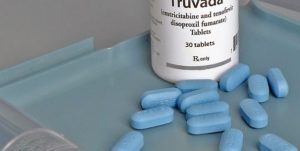
Assessing Barriers to PrEP Use in HIV- Transwomen in Philadelphia and San Francisco [3.2017-2.2019]
Co-PIs: Sarah Bauerle Bass & Jae Sevelius
Funder: Merck
“Use of perceptual mapping to assess perceptions of and barriers to PrEP use in trans women to inform intervention development.” This project will assess barriers to PrEP use in HIV- transwomen in Philadelphia and San Francisco.

Mychoice: Testing an Interactive mHealth Tool to Enhance Communication and Information Decision Making on Clinical Trial Participation in Cancer Patients from Underrepresented Populations [4.2017-3.2020]
CO-PIs: Sarah Bauerle Bass & Linda Fleisher
Funder: Merck
“mychoice: Testing an interactive mHealth tool to enhance communication and information decision making on clinical trial participation in cancer patients from underrepresented populations.” This project will test the effectiveness of a targeted mHealth tool to address clinical trial participation barriers in ethnic minority cancer patients in four oncology units in Philadelphia.![]()

Identifying Barriers to HCV Treatment Initiation in Prevention Point Clients: Addressing Community Needs through the Creating and Testing of Literacy Appropriate Materials [7.2015-6.2016]
PI: Dr. Sarah Bauerle Bass
Funder: Community Driven Research Day Funding
“Identifying Barriers to HCV Treatment Initiation in Prevention Point Clients: Addressing Community Needs through the Creating and Testing of Literacy Appropriate Materials.” This project is to identify HCV treatment initiation barriers in active drug using clients of Prevention Point Philadelphia and pilot testing a literacy appropriate decision aid in medical clinics.

Using Academic-Community Partnerships to Address Obesity and Health Literacy [9.2012-8.2015]
PI: Alice Hausman. Co-I: Sarah Bauerle Bass
Using Academic-Community Partnerships to Address Obesity and Health Literacy. This project is to establish and foster community partnerships to create community-based research to address obesity and health literacy issues in Philadelphia.

Using Perceptual Mapping Methods to Understand Barriers and Facilitators Related to African American Cancer Patients’ Participation in Clinical Trials [1.2013-6.2015]
Co-PIs: Linder Fleisher & Sarah Bauerle Bass
Funder: NODAL Grant
Using Perceptual Mapping Methods to Understand Barriers and Facilitators Related to African American Cancer Patients’ Participation in Clinical Trials. This research grant is studying perceptions of newly diagnosed African American cancer patients about clinical trials and clinical trial participation. Using perceptual mapping methods we are identifying barriers and facilitators to participation and creating targeted messages through development of touch-screen decision aid for ipads that will be tested in the clinical setting.

Risk Communication Training for State and County Public Information Officers and Emergency Responders around Messaging for Populations with Functional Disabilities [7.2012-6.2013]
Co-PIs: Alice Hausman & Twersky, S. Co-I: Sarah Bauerle Bass
Funder: Pennsylvania Department of Health
Office of Public Health Preparedness, Contract. This project provided risk communication training for state and county public information officers and other emergency responders around messaging for populations with functional disabilities.

Developing Risk Communication Materials for Radiological Terror Events for Low-literacy Populations [8.2009-6.2013]
PI: Sarah Bauerle Bass
Funder: NIH-NIBIB R03EB009561-01A1
Developing Risk Communication Materials for Radiological Terror Events for Low-literacy Populations. This research grant researched radiological terror event risk communication materials in low-literacy populations and pilot tested a modified tool based on perceptual mapping and psycho-physiological measures, including eye-tracking and heart rate.

Pilot Studies to Health Develop Risk Communication Materials for Low Literacy Populations [6.2009-12.2012]
PI: Sarah Bauerle Bass
Funder: Pennsylvania Tobacco Settlement Grant
Office of the Vice-President for Research, Temple University. Pilot Studies to Health Develop Risk Communication Materials for Low Literacy Populations. This project piloted the use of perceptual mapping and bio-physiological measures as a means to gather data to develop decision aids for low-literacy populations.

Using Perceptual Mapping to Develop Low Literacy CRC Screening Decision Aids [1.2007-12.2010]
Co-PI: Sarah Bauerle Bass
Funder: NIH-NCI 1R21CA120122
Using Perceptual Mapping to Develop Low Literacy CRC Screening Decision Aids. The major goal of this project was to use perceptual mapping and vector message design techniques to develop more effective colorectal-cancer screening decision aids for low literacy populations. National Cancer Institute.

Development and Testing of Preparedness Messages [8.2006-8.2007]
Development and Testing of Preparedness Messages. This project developed preparedness messages using a state Disaster Preparedness Guide based on findings from previous studies and tested those messages in the Risk Communication Laboratory using eye-tracking, pupil dilation, skin response and EKG monitoring to assess physiological responses to the messages.

Risk Communication, Social Marketing and Media Training Program Development for Disaster Personnel [1.2005-8.2006]
PI: Sarah Bauerle Bass
Funder: TU Tobacco Settlement Funding, OVPR
Risk Communication, Social Marketing and Media Training Program Development for Disaster Personnel. The goal of this research was to study levels of self-efficacy in first responders to deal with the media in the event of a terror event.

Communication Testing, Cultural Sensitivity and Risk Communication Training for Points of Dispensure (PODs) [7.2005-6.2006]
Communication Testing, Cultural Sensitivity and Risk Communication Training for Points of Dispensure (PODs). This contract developed literacy appropriate disaster preparedness risk communication materials for the public and conduct risk communication trainings for public health department personnel.

ARREST V - HIV/AIDS Resource Center [3.2004-2.2005]
PI: Sarah Bauerle Bass
Funder: CDC, Philadelphia School District
ARREST V – HIV/AIDS Resource Center. This contract provided educational support and training to Philadelphia school district teachers to address HIV/AIDS in the classroom, including a large educational resource lending library.

Internet Use by Newly Diagnosed Cancer Patients [2.2000-5.2001]
PI: Sarah Bauerle Bass
Funder: NIH-NCI RO3 CA90145-01
National Cancer Institute – Internet Use by Newly Diagnosed Cancer Patients. This study researched the relationships among Internet use, self-efficacy and behavior among newly diagnosed cancer patients